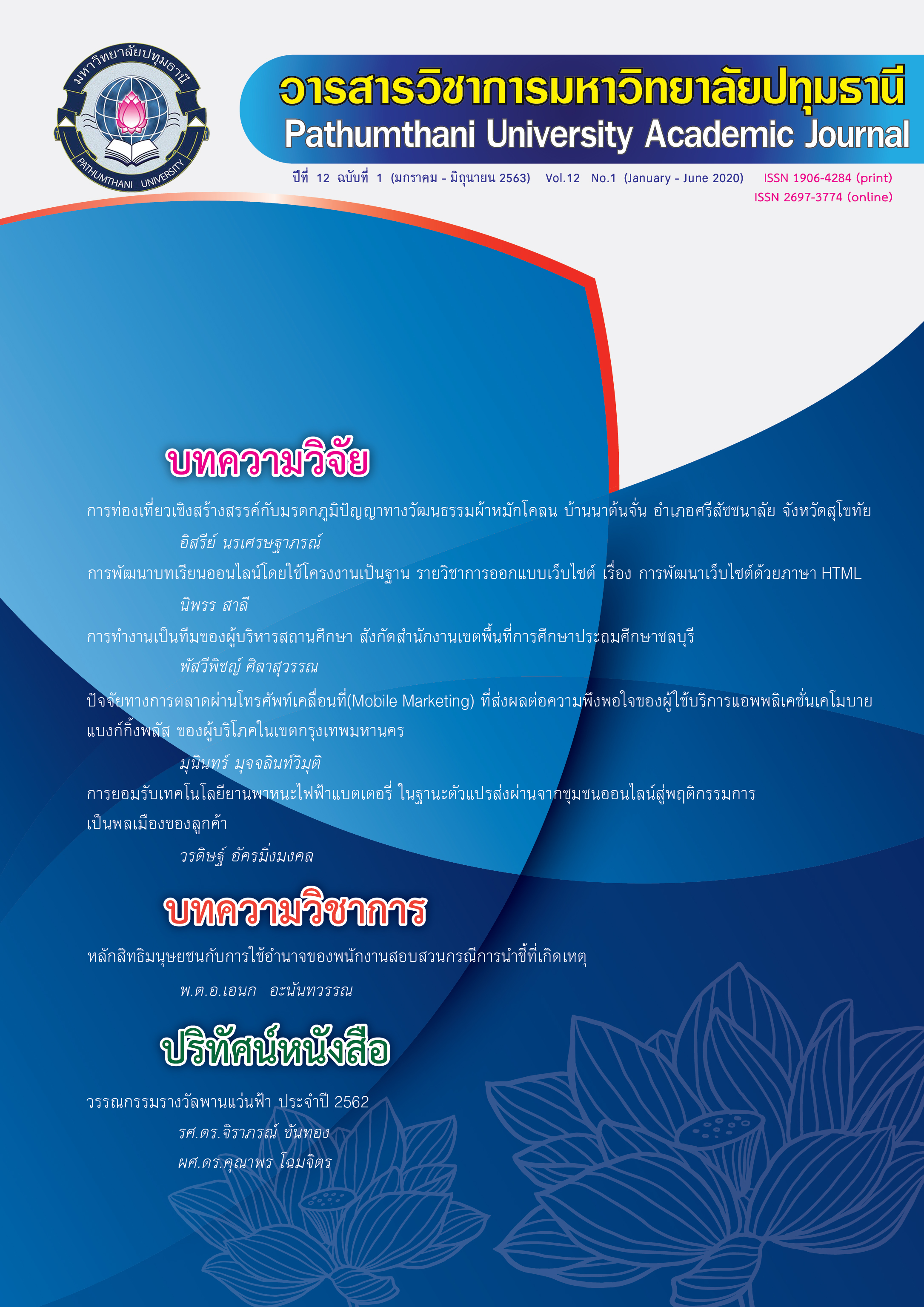HUMAN RIGHTS RELATING TO EXERCISING AUTHORITY IN CASE OF IDENTIFYING CRIME SCENE INCIDENT
Keywords:
Human Rights, Power of inquiry of officers, Investigations, Pointing out the crime scene in investigation proceduresAbstract
Human rights are the rights which are given to all the human beings by birth and must be respected as fundamental and rights of human. There should not consider any distinction or discrimination in nationalities, ethnic, origin, race, language, gender, age, disability, religious belief, cultural background or education. All the human beings are equal with no limitations. Their freedom and liberty shall be guaranteed in any case without borders. It is untouchable and there should not be any person, organization or state institution allowed to intervene into the people’s liberty and human rights. In addition to that, it is necessary that individual could live their life properly under adequate standard as human being. For that reason, it is emphasised that they can enforce their right to facilitate their own interests to attain the obtaining of basic education, nationality naturalization, receiving public health services thoroughly, being treated fairly and not being tortured. These include the right to obtain an appropriate justification of crime committing procedure. As social creature, the society environment needs to support human development for effectively succeed. Consequently, human rights should be applied tremendously in order facilitate the valuable rights of being human and to corporate the relationships between people. Moreover, the states should not demolish such rights as well. Therefore, the applicable of human rights would constitute fundamental living and peaceful within the society. An investigation officer action should be bound by the human rights adjustment under the Criminal Procedure Act for compiling an evidence including the interrogated, arrested or an action involve their duties. Nevertheless, the regulations that allowed the officer to bring an allege offender to the crime scene incident for the pointing after accepting the offence could deprive an officer action from the human rights enforcement. The human rights would be violated when the investigation officer misconduct the presumption of legal or the principle of not bounding not to betray themselves including the rights to remain silence. This is the main reason why many former practices of the investigative officer are considered to be treated as irresponsible and compose an issues to the National Police Office in reliable under the compensation for the infringement of liability arising from the misconduct of the investigation officer. Therefore, the author would like to suggest the scope of an appropriate investigation practiced by the officer on behalf of the state attorney. The author suggests furthermore an appropriate and international standard practice in terms of using the power in cases of investigating and gleaning evidences and proves. The power used by the investigation officer must be preserved in pursuance of the suspects’ fundamental rights during the custody to comply with the international human rights principles and related laws. The author also recommends if necessary, to revise the laws and procedures to ensure the fundamental rights within the international standard in future practices
References
กิตติพงษ์ กิตยารักษ์. (2541). กระบวนการยุติธรรมบนเส้นทางของการเปลี่ยนแปลง. กรุงเทพมหานคร : สำนักพิมพ์วิญญูชน
กิตติพงษ์ กิตยารักษ์,ชาติ ชัยเดชสุริยะ และณัฐวสา ฉัตรไพทูรย์. (2548). มาตรฐานองค์การ สหประชาชาติว่าด้วยกระบวนการยุติธรรมทางอาญา. กรุงเทพมหานคร : โรงพิมพ์เดือนตุลา.
กุลพล พลวัน. (2538). พัฒนาการสิทธิมนุษยชน. (พิมพ์ครั้งที่ 3). กรุงเทพมหานคร : สำนักพิมพ์วิ ญญูชน.
คณิต ณ นคร. (2540). รวมบทความด้านวิชาการของศาสตราจารย์ ดร.คณิต ณ นคร. กรุงเทพมหานคร : สำนักงานอัยการสูงสุด.
จุฑารัตน์ เอื้ออำนวย. (2553). บันทึกการเสวนา เรื่องสิทธิมนุษยชนระหว่างตำรวจกับผู้ต้องหา. วันที่ 14 มกราคม 2553 ณ ห้องประชุมศิษย์เก่าคณะรัฐศาสตร์ สถาบันนักกฎหมายและสิทธิมนุษยชน. กรุงเทพมหานคร : จุฬาลงกรณ์มหาวิทยาลัย.
ชาติ ชัยเดชสุริยะ. (2549). มาตรการทางกฎหมายในการคุ้มครองสิทธิมนุษยชนในกระบวนการยุติธรรมทางอาญา. กรุงเทพมหานคร : โรงพิมพ์มหาวิทยาลัยธรรมศาสตร์.
เดโช สมศรีธนาเดช. (2557). การทำแผนประทุษกรรมและการแถลงข่าวสื่อมวลชน. วิทยานิพนธ์ปริญญานิติศาสตรมหาบัณฑิต. มหาวิทยาลัยธุรกิจบัณฑิตย์.
ทวีเกียรติ มีนะกนิษฐ์. (2542). ปัจจัยที่ทำให้กฎหมายขาดประสิทธิภาพ. กรุงเทพมหานคร : วิทยาลัยการยุติธรรม สำนักงานศาลยุติธรรม.
เนติบัณฑิตยสภา. (2558). คำบรรยายเนติบัณฑิต ภาค 2. สิทธิมนุษยชนในกระบวนการ ยุติธรรม. กรุงเทพมหานคร : สำนักอบรมศึกษากฎหมายแห่งเนติบัณฑิตยสภา.
ไพโรจน์ พลเพชร และณฐกร ศรีแก้ว. (2549). โครงการศึกษาสิทธิเสรีภาพขั้นพื้นฐานตามกรอบรัฐธรรมนูญในบริบทของสังคมไทยและมาตรฐานสากลระหว่างประเทศด้านสิทธิมนุษยชน. กรุงเทพมหานคร : กรมคุ้มครองสิทธิและเสรีภาพ กระทรวงยุติธรรม.
ภัทรวิทย์ อบสุวรรณ. (2550). การทำแผนประทุษกรรมประกอบคำรับสารภาพในระบบ กฎหมายไทย. วิทยานิพนธ์ปริญญานิติศาสตรมหาบัณฑิต. มหาวิทยาลัยธรรมศาสตร์.
วีระ โลจายะ. (2532). กฎหมายสิทธิมนุษยชน. กรุงเทพมหานคร : ห้างหุ้นส่วนจำกัดโรงพิมพ์ชวนพิมพ์.
สมชาย กษิติประดิษฐ์. (2555). สิทธิมนุษยชน. กรุงเทพมหานคร : สำนักพิมพ์มหาวิทยาลัยรามคำแหง.
สำนักงานคณะกรรมการสิทธิมนุษยชนแห่งชาติ. (2561). วารสารวิชาการสิทธิมนุษยชน ปีที่ 3 ฉบับที่ 1 (มกราคม – มิถุนายน 2561). กรุงเทพมหานคร : คณะกรรมการสิทธิมนุษยชนแห่งชาติ.
เสน่ห์ จามริก. (2542). เกณฑ์คุณค่าและฐานความผิด. กรุงเทพมหานคร : โรงพิมพ์มหาวิทยาลัยธรรมศาสตร์.
อุดม รัฐอมฤต, นพนิธิ สุริยะ และบรรเจิด สิงคะเนติ. (2554). การอ้างศักดิ์ศรีความเป็นมนุษย์ หรือใช้สิทธิและเสรีภาพของบุคคลธรรมดาตามมาตรา 28 ของรัฐธรรมนูญแห่งราชอาณาจักรไทย พุทธศักราช 2540. กรุงเทพมหานคร : นานาสิ่งพิมพ์
Downloads
Published
How to Cite
Issue
Section
License
บทความที่ได้รับการตีพิมพ์เป็นลิขสิทธิ์ของวารสารมหาวิทยาลัยปทุมธานี
ข้อความที่ปรากฎในบทความแต่ละเรื่อง เป็นความคิดเห็นส่วนตัวของผู้เขียน กองบรรณาธิการไม่จำเป็นต้องเห็นด้วยเสมอไป และไม่มีส่วนรับผิดชอบใด ๆ ถือเป็นความรับผิดชอบของผู้เขียนแต่เพียงผู้เดียว



